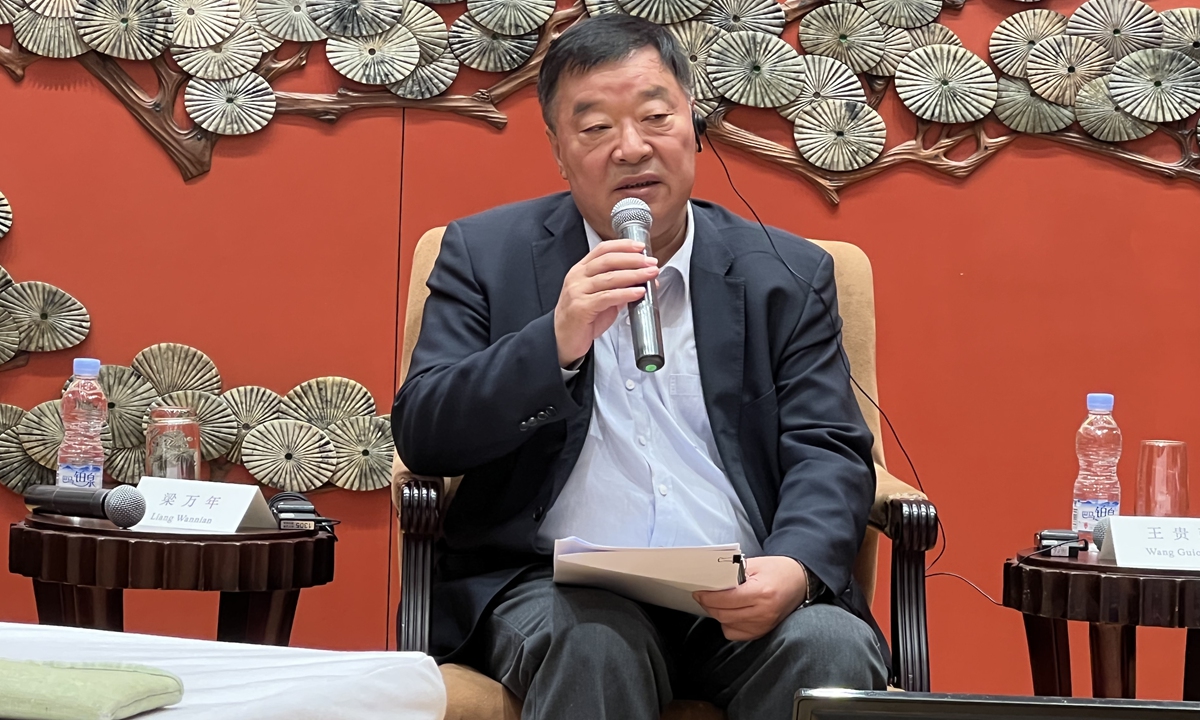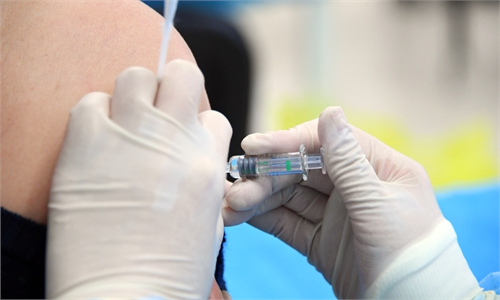China has reported all variants detected to WHO, will continue to shoulder responsibility in tracking new ones: NHC leading expert

Liang Wannian.Photo: Fan Anqi/GT
Responding to Western concerns about whether China's adjustment of COVID-19 policy would have an impact on the world and the transparency of figures on the death toll, Liang Wannian, head of China's COVID-19 response expert panel under the National Health Commission (NHC), said on Wednesday that China has reported all the variants that it has detected to the World Health Organization (WHO) and will continue to shoulder responsibility in tracking new variants.Rather than focusing on the death toll in China caused by COVID-19, the priority task for the world is to get through the impact of the pandemic, the expert said, adding that calculating the specific number of deaths caused by COVID-19 is unfeasible for most countries.
Judging from the current epidemic situation nationwide, the peak of infection for this wave across China has been on the decline.
"We have curbed this round of the outbreak, fully reflecting on the resilience of China's healthcare system," Liang said at an event on public health in Beijing, the Global Times learned on Wednesday.
China's healthcare system is still at the most critical time, whether in the treatment of serious illness, the prevention and control of rural epidemics, or in the protection of key populations, Liang noted.
While China embraced the world in following the downgrade of COVID-19 management, which lifted quarantine requirements for inbound passengers, a number of countries have announced new entry restrictions on travelers arriving from China, saying that surges of cases in China sparked concerns that they will bring new waves or subvariants to their countries.
Responding to such concerns, Liang said that China has been responding actively to the WHO in sharing information regarding subvariants. China has set up specialized groups and established tracking stations across the country, including at entry and exit points at each port, and medical institutions at various levels.
So far, China has reported all the subvariants that it has found to the WHO, Liang said, and will keep doing a good job in tracking new ones.
As for the accusations raised by some in the West about the accuracy and timeliness of reporting death tolls, Liang said that requiring a number for deaths caused by COVID-19 during the pandemic is unfeasible, as it is hard for almost all countries to set a specific standard, and each country uses its own standard according to its actual situation.
With the approaching Chinese Lunar New Year, a great number of people who, for the last two years, found it hard to travel due to strict COVID-19 measures, are expected to return to their hometowns, posing serious challenges to epidemic prevention work in rural areas of China.
Villages and counties have withstood the first surge of infections and made orderly preparations in terms of medicine, equipment and personnel, for future waves including infections brought about by the Spring Festival travel rush.
At the event, Liang put forward three priorities for epidemic prevention work in rural areas of China. First, ensuring rural areas have medications and supplies; second, early intervention and treatment for rural populations, especially the large number of vulnerable groups and high-risk groups; third, increasing the capability and resilience of local healthcare systems.
Wang Guiqiang, director of the infectious diseases department at Peking University First Hospital, added that the monitoring of key populations such as the elderly is crucial, and all health stations in rural areas should upgrade the health status of older residents regularly.
Wang also stressed the smooth transfer of patients with severe symptoms, as well as the reception of these patients into large hospitals.


